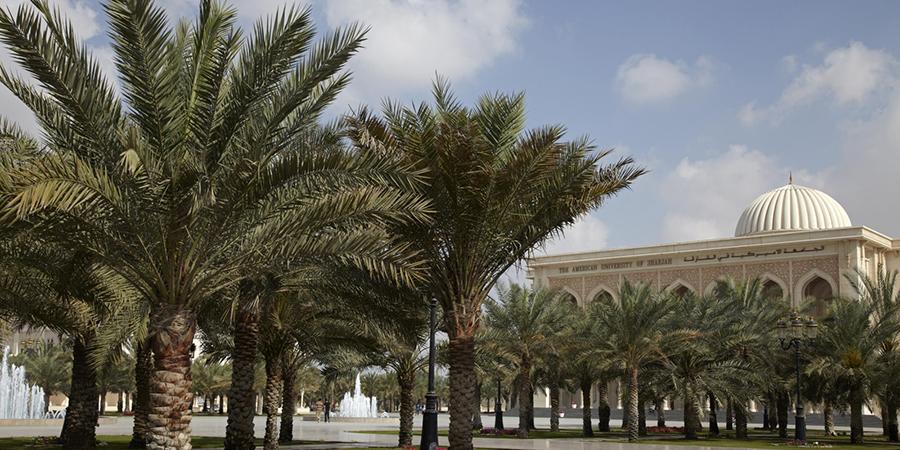- About
- Admissions
- Study at AUS
- Prospective Students
- Bachelor's Degrees
- Master's Degrees
- Doctoral Degrees
- Admission Publications
- International Students
- Contact Admissions
- Grants and Scholarships
- Sponsorship Liaison Services
- Testing Center
- New Student Guide
- File Completion
- New Student Orientation
- Payment Guide
- Executive Education
- Students with Disabilities
- Academics
- Life at AUS
- Research
- Contact Us
- Apply Now
- .

AUS and SSC organize webinar series on sustainability and the built environment
Students and faculty members at American University of Sharjah (AUS) can now explore sustainability concepts put into practice by participating in a series of webinars organized by AUS in collaboration with Sharjah Sustainable City (SSC).
The webinars, which kicked off last month with a session on energy and climate change, will cover topics such as smarter mobility, eco-districts and sustainable materials, and will take place throughout the spring semester. Many of these concepts can also be investigated further by visiting SSC, a 67-hectare master-planned community currently under construction in Al Rahmaniya, Sharjah.
“Many sustainability issues come alive for students when they are connected to real-life examples, especially when these examples are taking place right here in our backyard. The collaboration between AUS and SSC is a valuable opportunity for students to learn from the work of SSC, where concepts are put into action. We hope students will be inspired by the work happening here in Sharjah and the UAE,” said Rose Armour, Head of AUS Sustainability.
The webinar topics were particularly selected for their relevance and timeliness. Speaking about that aspect, Karim El-Jisr, Executive Director of the SEE Institute at Diamond Developers, the developers of SSC, said, “Sustainability has many facets, and the built environment is a good place to start. By 2050, there will be around 10 billion people living on our planet, of which 70 percent will commute or live inside cities. Energy, eco-districts, mobility and products impact our collective footprint in many ways.”
He added, “I hope that students will feel motivated to be the change they want to see in the world. The UAE has demonstrated that the impossible is possible. So how about mainstreaming sustainability? This is what we are trying to do.”
Each webinar is presented by two speakers, one each from AUS and SSC, who discuss the theme of the session. While the AUS faculty member focuses on the research done in the area, the SSC official talks about implementation and the applicability of sustainable theories in that area.
Last year, AUS and SSC signed a Memorandum of Understanding (MoU) to collaborate and implement their strategic objectives of providing sustainable solutions to global challenges and establishing links between industry and academia. This webinar series on sustainability and the built environment is one of many other activities the two institutions are planning to undertake as part of the agreement. Accordingly, a steering committee composed of representatives from AUS and SSC was established to coordinate collaborative activities such as research projects and seminars, including these webinars.
“In addition to the webinar series, the committee is also working on identifying joint research projects aligned with faculty expertise and SSC needs. These projects could be investigated as part of students’ graduate projects, master's theses and doctoral dissertations,” said Dr. Mohammed El-Tarhuni, Vice Provost for Graduate Studies at AUS and Head of the Steering Committee.
He added, “Sustainability is an integral part of AUS both operationally and academically. This collaboration will provide a venue for demonstrating to students how sustainable cities are going to function and increase awareness of technical and behavioral changes needed for a more sustainable future.”
The next webinar session is scheduled for March 17 and will discuss eco-districts, definitions, use of smart technology, promotion of culture of sustainability, and the commercial impact of eco-districts.
For more information about AUS sustainability efforts, please visit www.aus.edu/sustainability.

